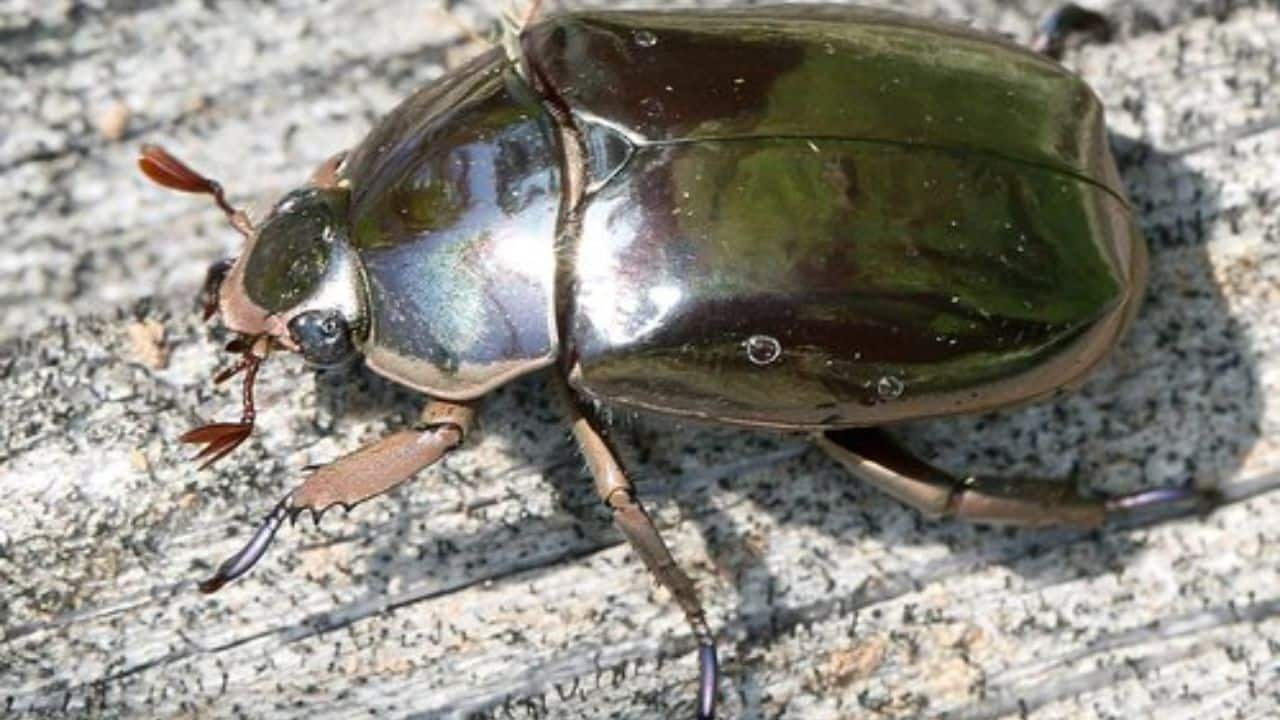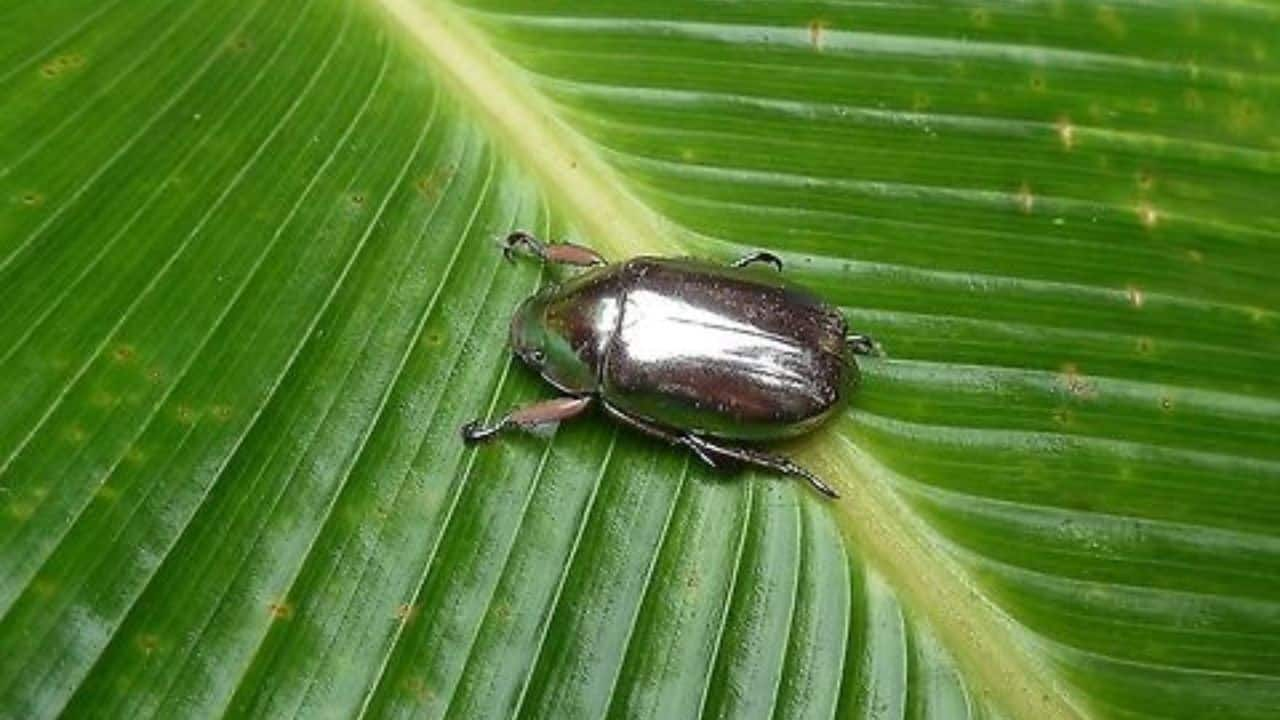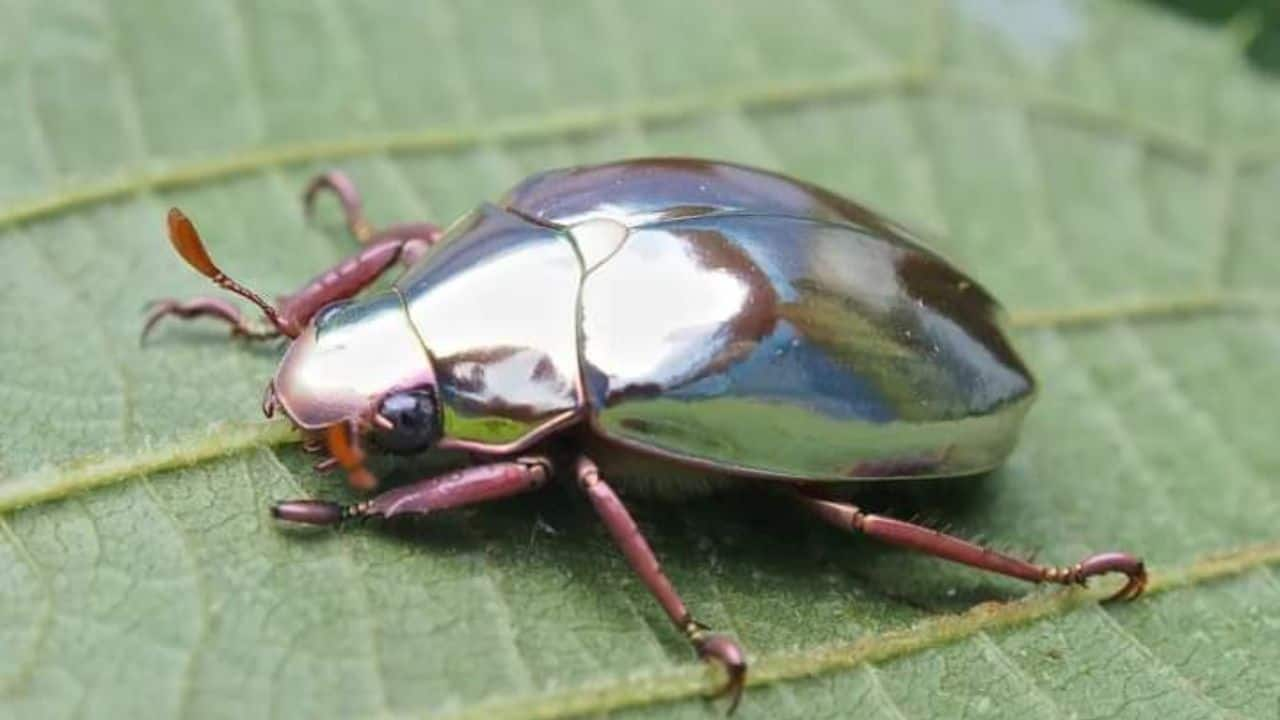Trending Topics:
- Blood Moon 2025
- Potoo Bird
- Cosmic Butterfly in Space
- Jupiter Juno
Chrysina Limbata: The shimmering beetle that reflects like a mirror
Chrysina limbata, a rare beetle native to Central America, dazzles with its mirror-like shell. Its metallic brilliance isn’t due to pigment but to nature’s clever play of light, turning it into a living, reflective wonder.
1/10

Mirror of Nature: Say hello to Chrysina limbata, the beetle whose shiny silver body reflects like an exact mirror. It's one of the world's shiniest insects. (Image: @ephemeral1107/X)
2/10

A Metallic Marvel: The shell of this beetle isn't silver-painted—its mirror appearance is due to microscopic layers that bounce light exactly. (Image: Michael Farmer/@gunsnrosesgirl3/X)
3/10

Found in the Rainforests: Chrysina limbata inhabits Central America's rainforests, particularly Costa Rica, keeping itself hidden among leaves. (Image: @FabulousWeird/X)
4/10

All Show: Its reflective shell is not all it seems—it's actually a brilliant example of camouflage, allowing it to merge with shiny rain-washed leaves. (Image: @7ayawaana/X)
5/10

Little but Breathtaking: At just around 2 cm in length, this beetle still manages to turn heads with its liquid-metal-like appearance. (Image: Michael Farmer/@gunsnrosesgirl3/X)
6/10

Elusive and Exotic: It's not easy to spot one in the wild. They're timid, nocturnal and very good at disappearing into their leafy habitat. (Image: Michael Farmer/@gunsnrosesgirl3/X)
7/10

Eco Role: Similar to most beetles, Chrysina limbata assists in breaking down plant life, with an important role to play in the forest's ecosystem. (Image: Michael Farmer/@gunsnrosesgirl3/X)
8/10

Not a Pet: Although stunning, it's unlawful in most nations to capture or sell them because they're a protected species. (Image: @Cybisterplatina/X)
9/10

Found in the Rainforests: Chrysina limbata inhabits Central America's rainforests, particularly Costa Rica, keeping itself hidden among leaves. (Image: @Botanichka/X)
10/10

Nature's Own Jewellery: Chrysina limbata alerts us that nature may be more complex and beautiful than anything created by man. (Image: @ToK_ScienceTree/X)
Discover the latest Business News, Budget 2025 News, Sensex, and Nifty updates. Obtain Personal Finance insights, tax queries, and expert opinions on Moneycontrol or download the Moneycontrol App to stay updated!






